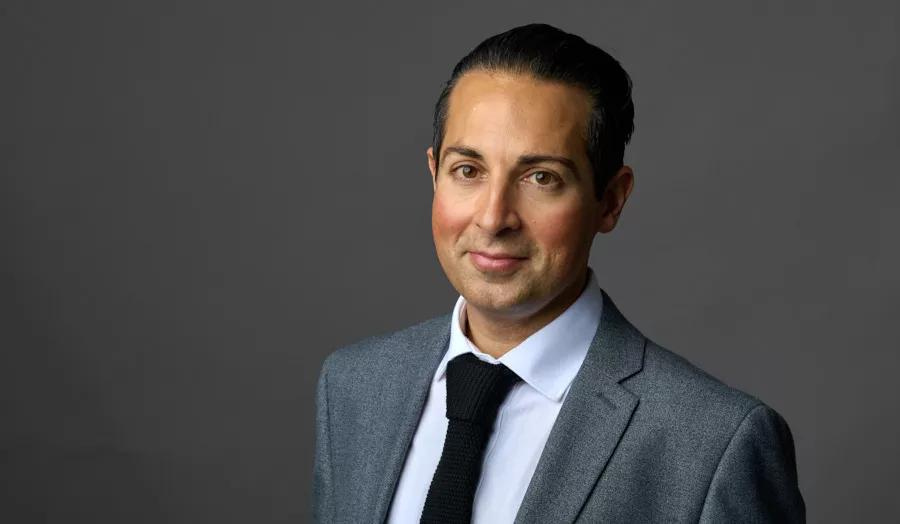We spoke to Senior Lecturer in Psychology, Dr Faisal Satti on World Mental Health Day.
Date: 10 October 2023
Across campus, London Metropolitan University is marking World Mental Health Day with a series of events to raise awareness of the importance of mental health and the services available for students and staff. We're also running our "Small Steps, Big Difference" campaign, which encourages our community to take small acts towards securing better mental health.
London Met’s Head of Comms, Ben Sawtell, sat down with Dr Faisal Satti, Senior Lecturer in Psychology, to discuss the importance of mental health awareness and his top tips for students.
How important is mental health awareness among students?
I think it’s something we could all think more about. There's lots of research suggesting that being a full-time student is an intense time, making people more likely to suffer with their mental health.
One of the biggest issues is that people aren't quite sure when they talk about mental health, because they start thinking about mental illness, whereas mental health is more universal, just like everyone has physical health they need to maintain.
What are some effective coping mechanisms for times of stress?
The biggest factor is social support. Having a strong social support network is crucial for our mental health, it’s about the power of connection. Other things like taking part in hobbies and activities can also help take a break from wherever the pressure is coming from.
How can students build social networks at university?
I always encourage students to try and grab every opportunity that they can. Engaging with others in group work can sometimes seem like a burden, but it's a great opportunity to meet like-minded people. Quite often, you meet some of the best friends you've ever had on these courses.
How important are the student support services at London Met?
Having that support there is crucial. Having somebody that students can speak to about issues completely outside of academia, somebody completely impartial and trained to listen, can be useful for students. We have some great people here to support them.
How has the pandemic highlighted the connection between a healthy body and a healthy mind?
The COVID-19 pandemic has been a wake-up call for many, emphasising the interconnectedness of physical and mental wellbeing. We've seen a surge in people taking up exercise, not just for its physical benefits but also for mental clarity and emotional balance. At London Met, we encourage our students to adopt a holistic approach to health, understanding that a healthy body can significantly contribute to a healthy mind.
How significant are initiatives like World Mental Health Day?
They're huge. The main thing is the way they help to reduce the stigma around discussing mental health. Everyone goes through periods of anxiety or depression; that's just as normal as having a physical issue. Reducing that stigma and making it more acceptable to talk about these things is the ultimate goal.
In addition to our Psychology BSc we run three courses focused on Mental Health:
- Psychology of Mental Health MSc
- Addiction and Mental Health MSc &
- Child and Adolescent Mental Health MSc
That are designed to support students in developing the skills and knowledge to become mental health practitioners.
Any advice for students struggling right now?
Just to be aware that it's a very common experience, particularly for students. The key part is not to keep things bottled up and ask for help – there's people here that are waiting and trained to support you.
Finally, what’s your small step?
Listening to Prince.

